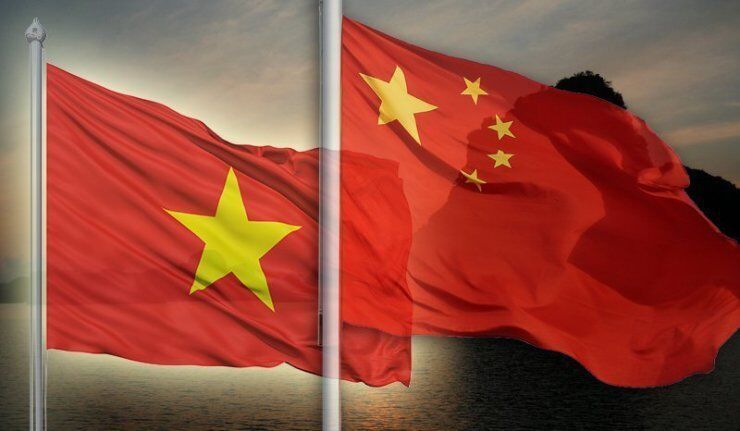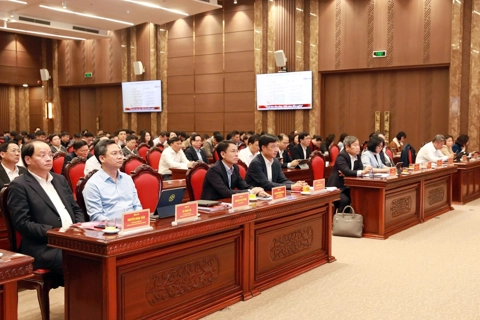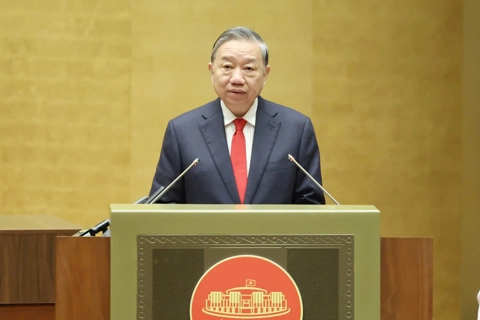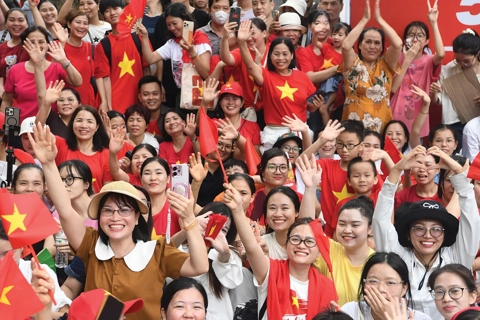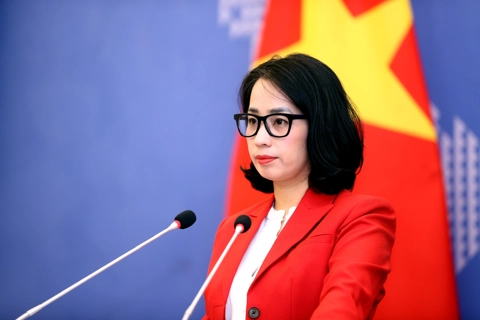Vietnam-China relations: Close political links
The current stage of the relationship began with the full normalization of relations in November 1991.
Top leaders of Vietnam and China have exchanged congratulatory messages to celebrate the 71st anniversary of official diplomatic ties (January 18, 1950-2021) between the two countries.
Vietnam and China have a deeply rooted diplomatic history, formalizing neighborly relations under the principles of “friendly Sino-Vietnam relations for peace, stability and prosperity.”
| The Vietnam-China relations have been consistently reinforced and enhanced under the principles of “friendly Sino-Vietnam relations for peace, stability and prosperity." |
General Secretary of the Communist Party of Vietnam and State President Nguyen Phu Trong, Prime Minister Nguyen Xuan Phuc, and National Assembly Chairwoman Nguyen Thi Kim Ngan have exchanged messages with Chinese Party General Secretary and State President Xi Jinping, Premier Li Keqiang, and Chairman of the Standing Committee of the National People’s Congress Li Zhanshu.
Deputy Prime Minister and Foreign Minister Pham Binh Minh, who is also Chairman of the Vietnam-China Steering Committee for bilateral cooperation, exchanged greetings with Chinese State Councilor and Foreign Minister Wang Yi, Chairman of the China - Vietnam Steering Committee for bilateral cooperation.
Political links highlighted
China was the first country in the world to establish diplomatic relations with Vietnam. In 2008, the two countries upgraded the relations to Comprehensive Strategic Cooperative Partnership status, the highest cooperation framework in Vietnam’s relations with its partners.
The close cultural and political links both historically and in modern times through the leading rule of the Communist Party of Vietnam (CPV) and the Communist Party of China (CPC) have cultivated stronger ties between the two countries, according to Ramses Amer, Associated Fellow, Institute for Security & Development Policy, Sweden.
Expanding political, cultural, economic, and military contacts between the two countries illustrate the positive trend in improving and expanding bilateral relations. On a regular basis, official delegations exchanged between the two countries have discussed ways of expanding co-operation in various fields.
In the political field, the relationship between the CPV and the CPC has been expanded through exchange visits at various levels. The main issues have been included formally in the Joint Statements and Joint Communiqués issued in connection with high-level meetings.
In addition, the land border between the two countries is the scene of extensive contact between the populations on both sides. There is also considerable Chinese tourism in particular into the northern part of Vietnam.
Economic ties
The current stage of the relationship began with the full normalization of relations in November 1991. A number of bilateral agreements has been signed following the full normalization of relations.
Since 2004, China has been the biggest trade partner in Vietnam. In 2019, the two-way trade reached nearly US$117 billion, including $41.4 billion worth of Vietnam’s exports and $75.45 billion worth of Vietnam’s imports, according to Vietnam’s Ministry of Industry and Trade.
The increase in bilateral trade has resulted in a growing Vietnamese trade deficit with China. The trade deficit issue has been raised in high-level bilateral talks and the two sides seem to agree that the imbalance in bilateral trade needs to be addressed. The stated aim is to promote an economic relationship that is mutually beneficial and to achieve a “win-win” outcome.
Challenges
According to Ramses Amer, there are challenges such as the disputes in the South China Sea (called East Sea by Vietnam) that must be managed properly so as to avoid negative repercussion of the broader relationship. The two sides must also address the potential future challenges such as economic competition and uneven trade relations as well as risks associated with developments affecting the Mekong River.
Deepening bilateral co-operation in different fields and expanding economic interaction have contributed to the development of a more stable relationship, Ramses Amer said, adding that the future development of the relationship will be determined by how successfully Vietnam and China handle their disputed issues.


